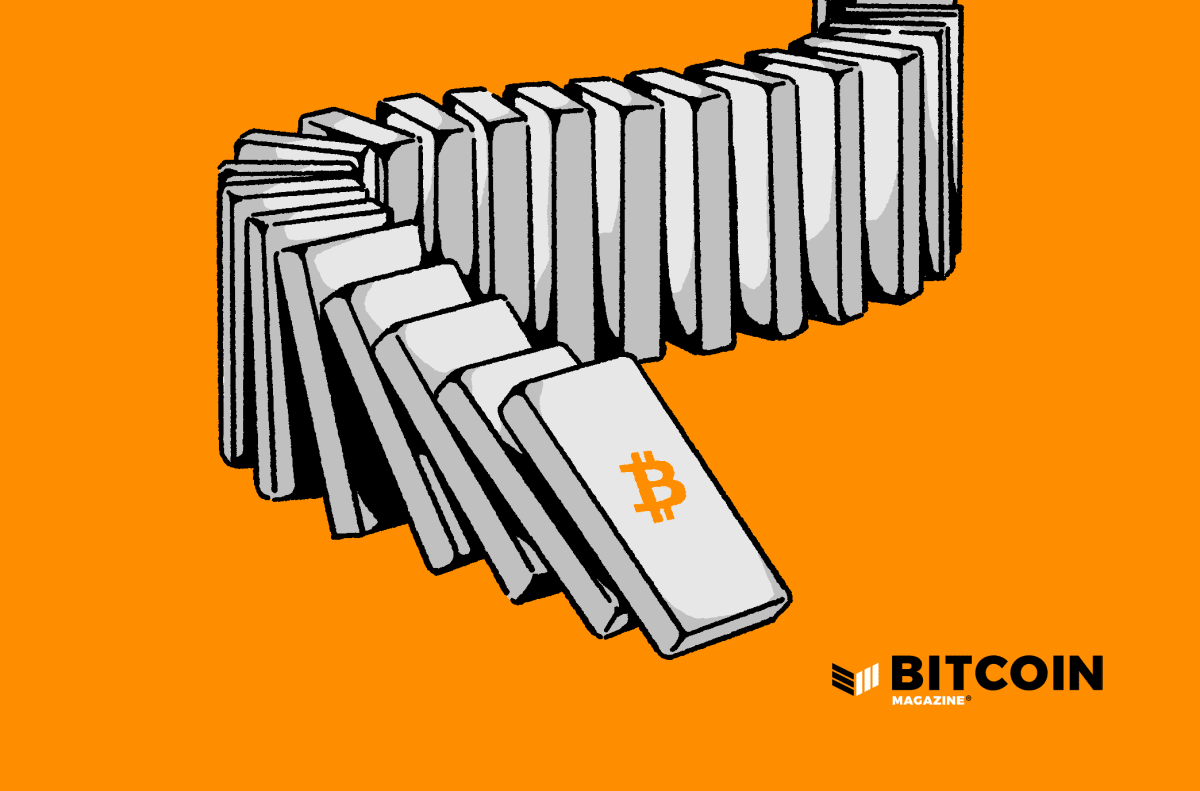As Banking Collapses Erode Trust, Bitcoin Fixes Moral Hazard

As the underlying issues in our economy are exposed by recent banking failures, Bitcoin stands as a trustless, alternative money.
This is an opinion editorial by Mickey Koss, a West Point graduate with a degree in economics. He spent four years in the infantry before transitioning to the Finance Corps.
As unrealized losses piled up, Silicon Valley Bank (SVB) gradually, then suddenly became insolvent and people are beginning to wake up to issues pervading our financial system. Modern day bank runs, though digital, can force banks to sell reserve assets at a loss, inevitably leading to insolvency.
As Balaji Srinivasan has pointed out, what was once considered the gold standard for risk-free reserve assets is now on the precipice of a potential new banking crisis. Is this the end of the U.S. treasury as we know it?
If nothing else, the events over the weekend — from SVB’s failure to issues with other financial institutions to alarming intervention by the government — demonstrate just how fragile the system has become, underscoring its dependence upon money printing even as it is being undone by the low-yield, low-interest-rate environment that was caused by the printing in the first place. The dichotomy is stark, but there are lessons to be learned.
You Can’t Taper A Ponzi: Why The Legacy Banking System Is Ripe For Failure
The way the banking system works is, essentially, banks take your deposits and lend them out at higher interest rates than they pay you. They often keep reserves in U.S. treasury bonds, among other things, and everything seems to work until it doesn’t.
With the Federal Reserve’s tightening cycle, raising interest rates meant decreasing the price of bonds, devaluing banks’ staple reserve asset. When depositors come to redeem their deposits, banks are forced to sell their assets at a loss, eventually becoming unable to stem the bleeding.
Regional banks will bear the brunt of this hit, as demonstrated by the recent collapse of SVB. Federal regulators are desperately trying to prop up confidence in the system by backing 100% of depositors’ money, but at what cost?
https://twitter.com/lisa_hough_/status/1635045124936982528
Depositors are surely already fleeing to the big boys, which will result in a more concentrated and fragile system than before. I think everyone knows deep down that they won’t be able to save every bank customer. Just how much money printing will the public tolerate in the name of financial stability?
In terms of equity holders, why would anybody want to hold stock in a small bank at this point? If banks fail and the Feds choose to make depositors whole while everybody else suffers, all of the risk is transferred onto everyone but the depositors, incentivizing stock sell offs and eating away at struggling banks’ risk-absorbing capital. This move could force smaller banks into much worse positions than they were before.
Systemic Trust Vs. Systemic Trustlessness
The scenario playing out before us is a stark illustration of what happens when trust starts to break down in a system fundamentally based on the idea of trusting, rather than verifying. In modern times, people think they need to hold their money in banks, but they have to trust the banks to maintain effective risk-management strategies in order to secure their deposits.
Bitcoin is fundamentally different. You can eliminate reserve requirements, duration and interest rate risks, counterparty risks and the like. There is no trust in Bitcoin. There is only code. It is backed one to one with itself, and as long as you hold your own keys properly, you don’t need to worry about a bank run.
As companies struggle to make payroll this week, I think this might just be a spark that lights a fire behind Bitcoin. Trustless money might just be the thing that helps to stem the tide of catastrophe in a system where trust appears to be crumbling.
This is a guest post by Mickey Koss. Opinions expressed are entirely their own and do not necessarily reflect those of BTC Inc or Bitcoin Magazine.


